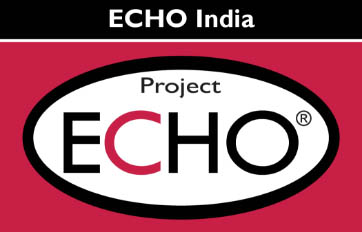With every heartbeat comes another rhythm we rarely notice: tick, tick, tick. That’s cardiometabolic syndrome (CMS), coming closer with every second of the clock. It is one of today’s and the future’s greatest silent killers. Within the hustle of our daily lives, it thrives on stress, poor diet, and sedentary habits. It might not strike now, but if left unchecked, it threatens not just our health, but our very lives.
The need of the hour is to act fast and look beyond treating conditions in isolation. Medical intervention must move toward holistic care that reflects the realities of modern lifestyles. Diabetes, hypertension, obesity, and other risk factors should not be viewed as separate issues but as interconnected conditions under the umbrella of cardiometabolic syndrome. This means shifting from a symptom-by-symptom approach to one that emphasizes prevention, lifestyle changes, and comprehensive support; a treatment that is adapted to today’s fast-paced, urbanized lives.
A Shift in Treatment Practices
In West Bengal, this transformation is being driven through ECHO India’s Cardiometabolic Syndrome (CMS) Program. Frontline healthcare professionals are increasingly approaching conditions such as hypertension and diabetes from a lifestyle-management perspective rather than focusing solely on symptomatic treatment. The ECHO Model provides doctors with a platform to learn, share, and interact with experts remotely, fostering a culture of continuous knowledge exchange.
Dr. Shoma Laha, Medical Officer, UPHC 82, reflected on the shift:“Earlier, we relied solely on our prior knowledge. After the ECHO training, the screening, diagnosis, and treatment processes have improved significantly, and treatment is now being provided effectively here, making a huge difference. Patients are getting better and truly benefitting. I have learned a great deal through the sessions and have never missed any session.”
Talking about the lifestyle-based approach, Dr. Samir Kumar Datta added: “Before the CMS training, we focused mostly on medications, often overlooking lifestyle, diet, and obesity. Now, we understand that obesity and metabolic syndrome are future health challenges, and we emphasize lifestyle changes first, then medication.”
This approach is now trickling down to other healthcare professionals. “Even CHOs and ASHA workers are spreading these messages on prevention, diet, and exercise in their monthly meetings, ensuring that communities understand the importance of healthy living,” he noted.
Connecting Doctors, Changing Lives in West Bengal
In the fight against CMS, staying updated is crucial. Doctors must interact with peers and remain aware of the latest practices and patient management approaches. The ECHO platform has enabled this exchange, especially in West Bengal, where continuous interaction with experts has become vital not only for doctors but also for patient well-being.
Sharing her experience, Dr. Shoma Laha said: “As a master trainer for the CMS programme, I visited Delhi and met Dr. Karla. It was a great experience where I learned a lot, and through the ECHO India sessions, I now apply this knowledge in my daily practice. It has truly been wonderful.”
Echoing similar sentiments, Dr. Arpan Mitra, Medical Officer, Kolkata Municipal Corporation, remarked: “Managing cardiometabolic syndrome, especially diabetes and obesity, is very nuanced and requires constant updates. Through the ECHO platform, I had the opportunity to interact with leading experts, including top endocrinologists.”
A Collective Step Forward
As cardiometabolic syndrome emerges as one of the most pressing lifestyle-related health challenges of our time, tackling it requires more than medical prescriptions, it demands a holistic and empathetic approach. The ECHO India CMS Program is paving the way, empowering doctors and frontline health workers in West Bengal to move beyond treating conditions in silos and instead address them through prevention, lifestyle counseling, and integrated care.
Dr. Samir Kumar Datta captured this transformation perfectly: “For me, the CMS training is not just about medicine, it is about love, responsibility, and communication. A doctor must not only prescribe but also ensure patients are following through. With the help of CHOs and ASHA workers, this is now possible. This program is essential, and I wholeheartedly recommend it.”
The CMS Program is reshaping medical practice and strengthening community-level care. By addressing interconnected health risks and promoting lifestyle-based interventions, it marks a powerful step forward in the fight against cardiometabolic syndrome. West Bengal is steadily moving toward a future where cardiometabolic syndrome is no longer a silent threat, but a condition managed with awareness, care, and community strength.
